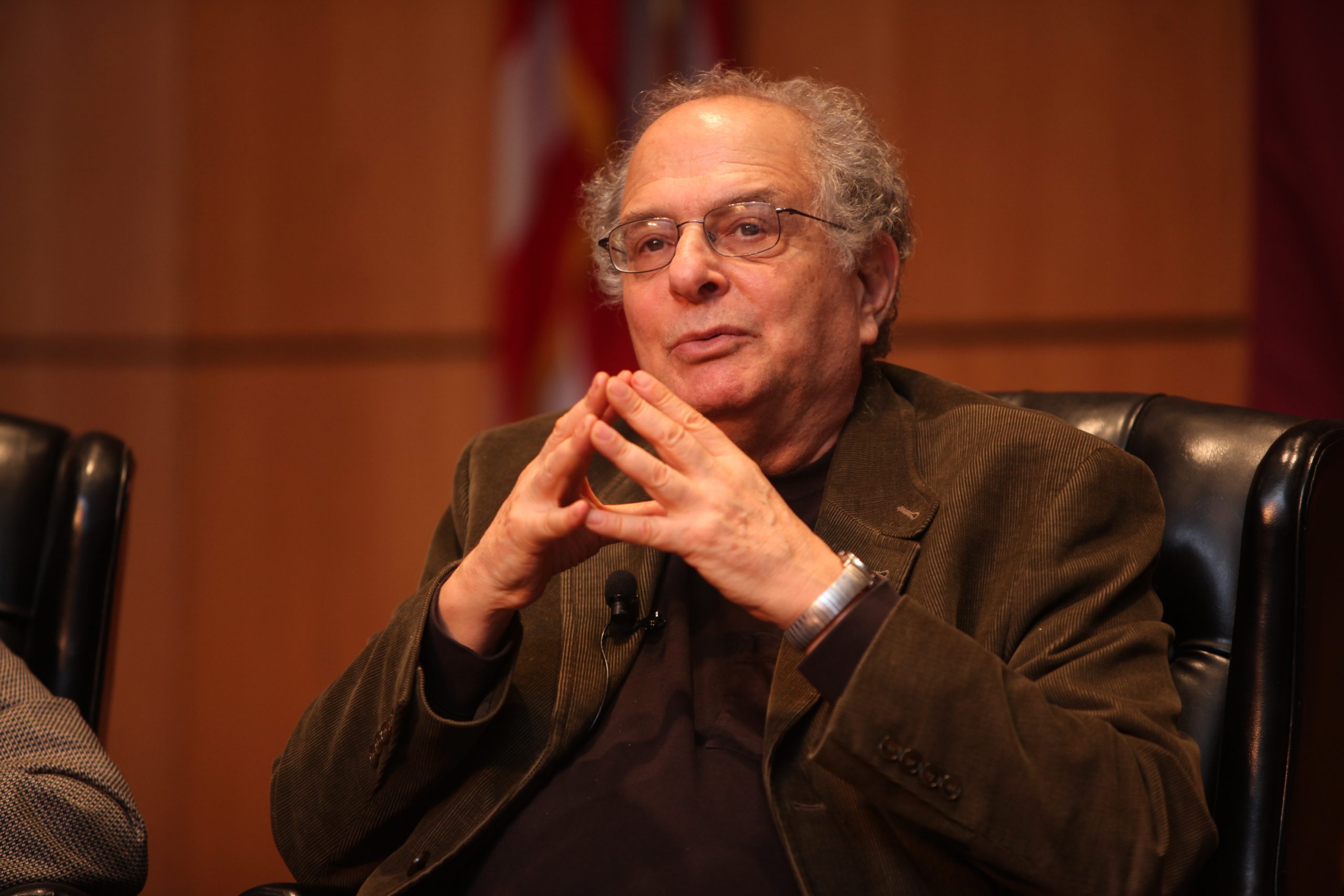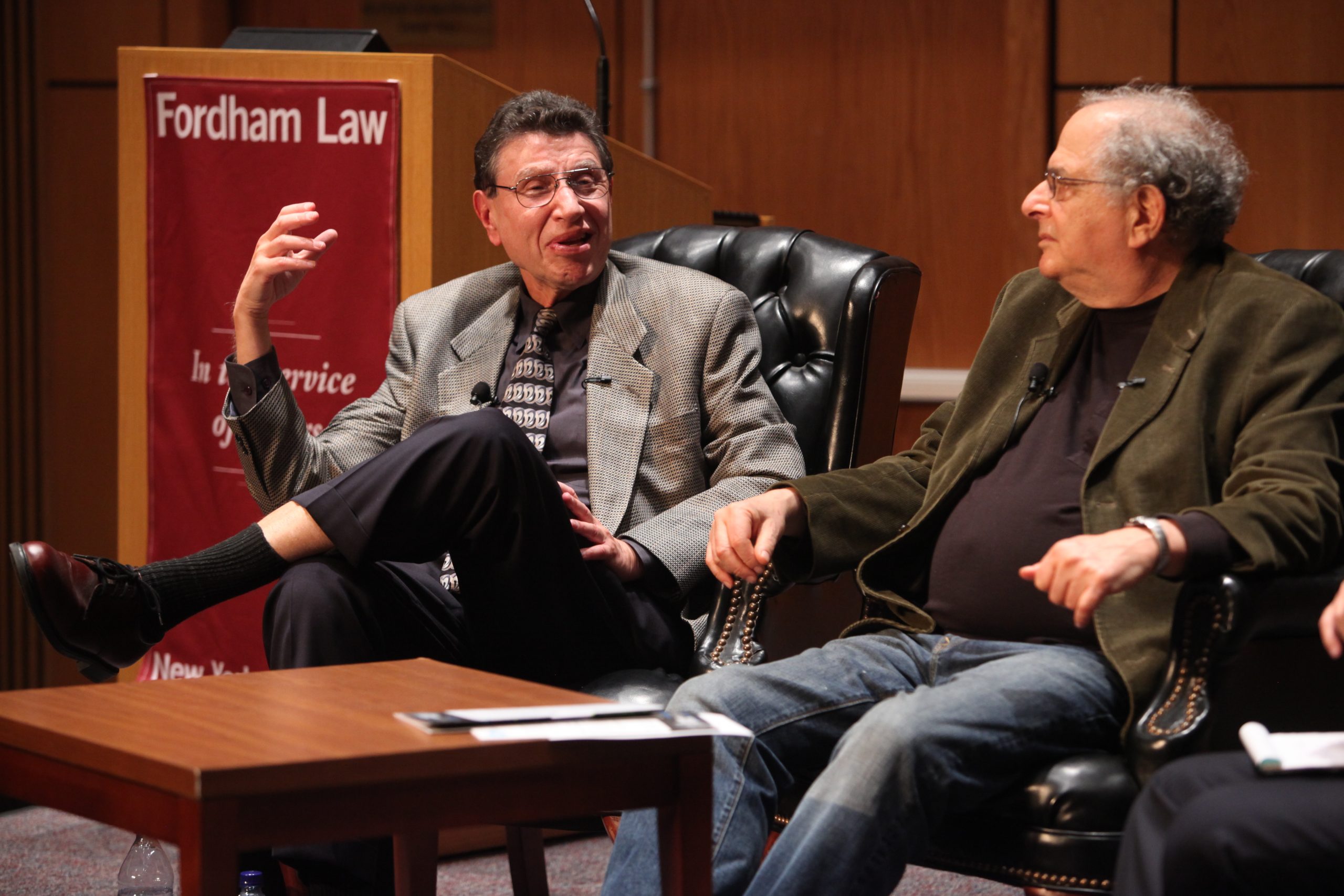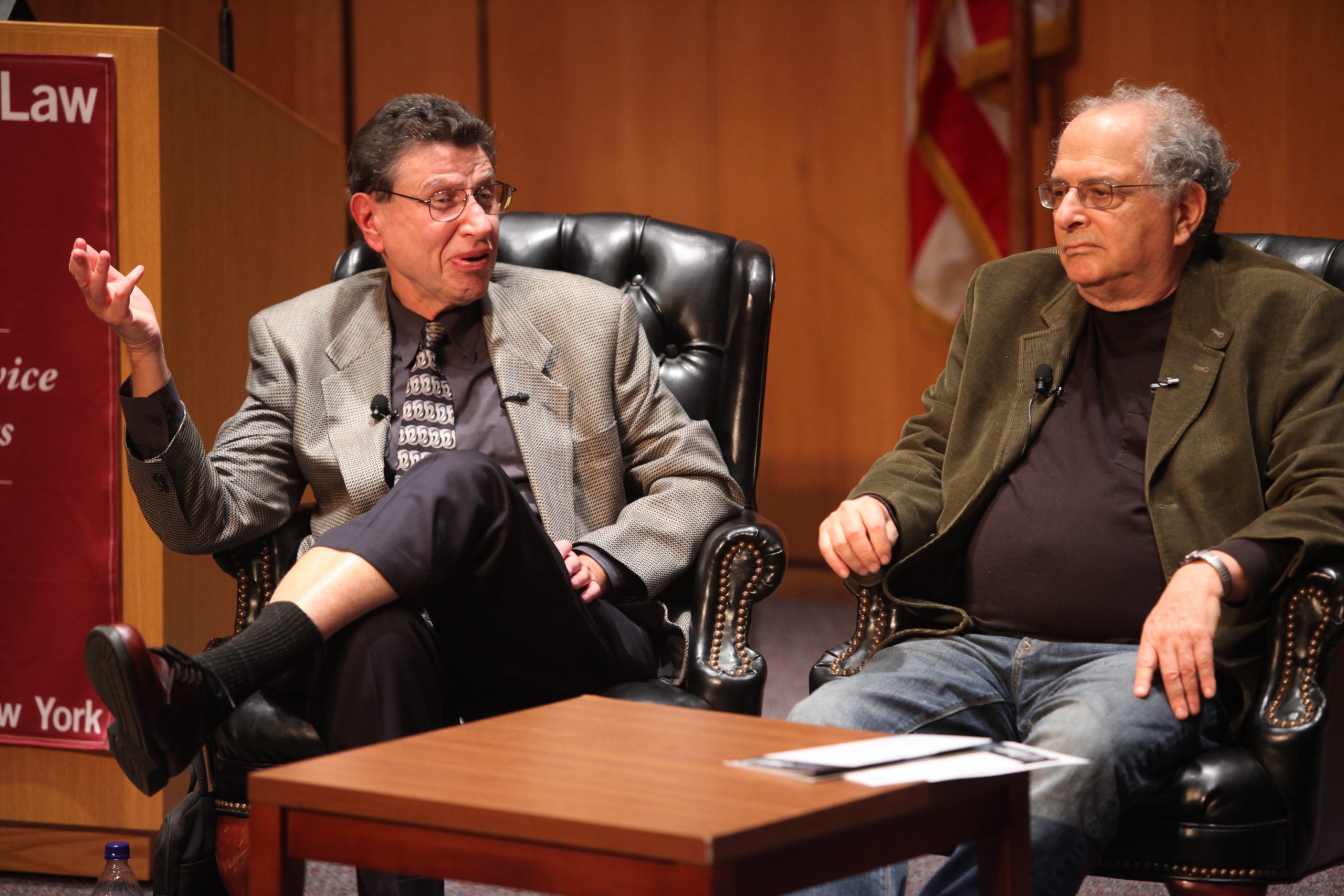They Won't Forget: Screening and Conversation
Lana Turner’s film debut in this classic motion picture from the 1930s is a fictionalized drama based on the Leo Frank trial.
Lawyer and activist, Abraham Foxman, playwright, Alfred Uhry, and professor, Morris Dickstein, joined FOLCS for a screening and discussion of They Won’t Forget.
Watch more like They Won’t Forget: Screening and Conversation here.



/
Abraham Foxman
Lawyer & Activist
Abraham H. Foxman, National Director of the Anti-Defamation League (ADL) since 1987, is world-renowned as a leader in the fight against anti-Semitism, bigotry, and discrimination, and as the author of The Deadliest Lies: The Israel Lobby and the Myth of Jewish Control (Palgrave Macmillan, September 2007) and Never Again? The Threat of the New Anti-Semitism (HarperSanFrancisco, 2003).
In the forefront of major issues of the day, including the rise of global anti-Semitism, the war on terrorism, church/state issues, religious intolerance and issues relating to the Holocaust, he consistently speaks out against hatred and violence wherever they occur.
Mr. Foxman regularly confers with elected officials and community leaders here and abroad. He has had consultations in Europe, Russia, Israel, Egypt, Saudi Arabia, Jordan, China, Japan, South Africa, and Argentina, as well as with Palestinian leaders, on problems of ethnic hatred, violence, terrorism, and to promote democracy. He has had six audiences with Pope John Paul II. Mr. Foxman is a passionate supporter of the State of Israel and a voice for peace in the Middle East.
A Holocaust survivor, Mr. Foxman was a member of the President’s United States Holocaust Memorial Council, appointed by Presidents Reagan, Bush and Clinton. He has been a participant of official Presidential delegations to special events in Europe and Israel.
Alfred Uhry
Playwright
Alfred Uhry is distinguished as the only American playwright to have won a Pulitzer Prize, an Academy Award, and two Tony Awards. A graduate of Brown University, Uhry began his professional career as a lyric writer under contract to the late Frank Loesser. In that capacity he made his Broadway debut in 1968 with Here’s Where I Belong. His first major success came when he collaborated with Robert Waldman on a musical adaptation of Eudora Welty’s The Robber Bridgegroom, which opened at the Mark Taper Forum in 1976 and went on to Broadway, winning Mr. Uhry his first Tony nomination. He followed that with five re-created musicals at the Goodspeed Opera House.
His first play, Driving Miss Daisy, opened at Playwrights Horizaons Theatre in New York in 1987. It moved subsequently to the John Houseman Theatre where it ran for three years and won the Pulitzer Prize in 1988. The film version, starring Morgan Freeman and Jessica Tandy, won the Academy Award for Best Adapted Screenplay in 1990. The film also won the Best Picture Award.
Morris Dickstein
Professor
Morris Dickstein is Distinguished Professor of English at the Graduate Center of the City University of New York and senior fellow of the Center for the Humanities, which he founded in 1993 and directed for seven years.
He is a widely published reviewer and critic, perhaps best known for his recent book on the 1930s, Dancing in the Dark: A Cultural History of the Great Depression (2009). His other books include Gates of Eden: American Culture in the Sixties (1977, 1997), Leopards in the Temple: The Transformation of American Fiction, 1945–1970(2002), and A Mirror in the Roadway: Literature and the Real World (2005).
He also edited The Revival of Pragmatism (1998). His essays and reviews have appeared in the New York Times Book Review, Partisan Review, The American Scholar, Raritan, The Nation, Literary Imagination, Slate, Dissent, the Washington Post, the Chronicle of Higher Education, Bookforum, and the Times Literary Supplement (London). He has served as film critic of the Bennington Review and Partisan Review and was an advisor for a documentary film about four leading New York intellectuals, Joseph Dorman’s Arguing the World.
He was a founder and board member (1983–1989) of the National Book Critics Circle and Vice-Chair of the New York Council for the Humanities from 1997 to 2001. He was a contributing editor of Partisan Review from 1972 to 2003 and served as president of the Association of Literary Scholars and Critics in 2006–2007.